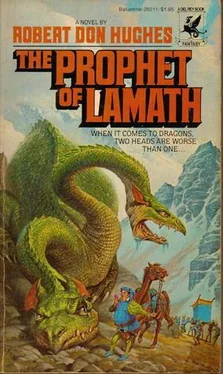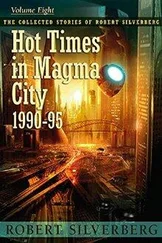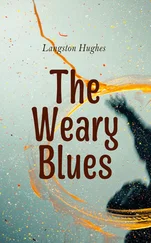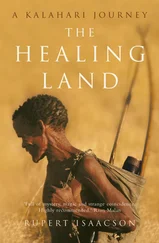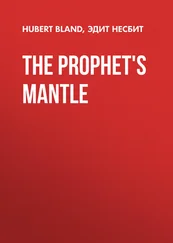“Yes—how could he be more loyal?” Pezi agreed. Naquin sat back on his throne and folded his hands on his lap. “Yes, Pezi,” he affirmed, “you and I are going to be great friends.” Bronwynn pored earnestly over the characters in the flickering firelight. So hard did she squint, so deep were the furrows of concentration plowed into her forehead, that her delicate eyebrows nearly touched over the bridge of her nose. She read out loud, her voice now halting as she unraveled skeins of words woven into complicated passages, then skipping as she raced through fragments easily understood. Pelmen nodded frequently, mouthing the words along with her and helping her when she stumbled.
Rosha sat against the wall, his arms locked around the one knee he had drawn to his chin, and leaned his head against the stone. It was hard to tell whether he was visualizing the passages as Bronwynn read them, or daydreaming.
“It’s easy, Rosha,” Bronwynn exclaimed. “It’s in our tongue, only the runes are different.” Rosha grunted to prove he was awake, and the girl raced on, excited. “Perhaps it is a bit difficult at first—the characters are. So oddly shaped—but it doesn’t take long to learn. Why don’t you try it?” Rosha opened one eyelid and looked at her, then shook his head and leaned against the wall once more.
“When he chooses to learn there will be time,” Pelmen told her. Then he pointed to the place where he wanted her to begin again.
“But why is it in our speech?” Bronwynn asked.
“Why w-w-wouldn’t it b-be?” Rosha challenged her.
“There are other lands, Rosha, and many use tongues other than ours—” The girl turned again to Pelmen. “But I don’t understand why, if these people used our speech, they made use of these strangely shaped runes.”
“I think the fathers of all our lands used these same characters in the time long past. I think they chose deliberately to change them, when the one land was divided into three.” Rosha sat up at that. Bronwynn looked puzzled. Both waited for Pelmen to explain.
“Have you never thought it strange,” he began, “that though the three lands hold one another in ridicule, still the speech is the same wherever in the three lands you may travel?”
“The s-s-speech is not the s-same,” Rosha muttered.
“I can barely under-s-stand the b-b-brothers.”
“Yes, the dialects differ,” Pelmen agreed, “but you can understand.
Certain words may sound strange on the lips of the brothers, but their meanings stay the same, whether here or on the streets of the High City, or on the plains of southern Chaomonous.”
“Aren’t the merchants responsible for that?”
Bronwynn asked thoughtfully.
“Responsible for preserving the common speech, yes—very possibly responsible for our present alphabet as well, after these runes disappeared. But could merchant houses influence any of our lands to adopt this tongue on the basis of trade alone?”
“But if the three lands were once united, why would they choose to divide?” Bronwynn wondered.
“P-p-perhaps they d-didn’t choose,” Rosha muttered. “P-perhaps it was chosen for them.”
“It was both chosen for them and they chose, Rosha. Few changes that great occur from a single cause. Many factors worked on our fathers of old to destroy the one land. All are described in that book Bronwynn holds.”
“Please, Pelmen, tell us! It’s so much easier to hear you explain it than to try to read it all.” Pelmen nodded, then reached out to take the book from her and seated himself on the stone shelf. Bronwynn scooted the stool away to give him room. Then she leaned against the wall beside Rosha. The small cell seemed more so with all three of them crammed inside, but to Pelmen it seemed the safest place to pursue their study.
He placed the lamp to one side, closed his eyes, and began. “It’s hard to condense factors without making generalizations, but the breaking of the one land resulted from our fathers’ inability to integrate all they discovered in the one land’s last age. There were so many people then—many more than live today—and so much happened so fast.
Various groups of men began to cluster around ideas they held in common. There were those who saw the powers of the air as inanimate forces that could be controlled by physical means. They built devices to harness the powers and hold them in tension. Others viewed these powers as spirits of the wind and fire, that could only be controlled by magic. These were the ancient powershapers, who scoffed at using tools to bend the powers. Still others clustered around various leaders, men who taught that the powers aided only those who worshipped them. None of these groups could live with the others.
“Too much took place to sketch here—that’s why I want you to read the book, my Lady—but it seems that man is foolish enough to believe that if he can hurt another man sufficiently, that other man will come to agree with him.”
“There was war?” Bronwynn asked.
“Many wars, Bronwynn. Certain men of great authority devised a plan that would separate these warring factions from one another, hoping that with separation would come peace. It was never their intention that this be permanent—they only wished to keep men away from one another’s throats until the race learned to integrate all these parts of its personality. Their plan succeeded beyond their expectations—and well beyond their wishes as well. The capital city of the one land disappeared.”
“Where was it?” Bronwynn asked excitedly. “N-ngandib-Mar? On the high p-plateau?”
Rosha suggested.
“I bet it was somewhere in Chaomonous,” said the girl.
“I’ve never found it,” Pelmen replied quietly. “It disappeared, along with its history, its art—and its writing. Except for the book,” he added, patting the volume absently.
“What was their plan? Does it say?” Pelmen opened the heavy codex, flipped through it until he found the page he wanted, and passed it back to the girl. “Read there.” Once again Bronwynn knitted her brows together and read: “We have succeeded in crafting the beast through our unified efforts. The power of the subject can only be guessed, but it seems clear from our experiments that it will be fully capable of dominating man’s history for at least a short period—long enough, perhaps, for our race to come of age.” Bronwynn glanced up at Pelmen, wide-eyed. “What beast?” she asked. He motioned to the page, and she read: “We have taught him the rudiments of common speech, and given him a name. From this point forward we will attempt to increase the natural hostility of the beast with calculated cruelty. When we at last unleash Vicia-Heinox on the world, we trust he will be enough of a challenge to mankind’s existence that dealing with him will demand the best energies of all cooperating factions.” Bronwynn stopped incredulously. “They made the dragon?”
“And the dragon unmade them.” Pelmen stood, his head bumping the low ceiling, and stretched his arms before him. “How long it’s been since those words were written, I’ve no idea.
This, though, is the section of most concern to me.” Pelmen leaned over and flipped through the pages once again. He read upside down, for the book lay in Bronwynn’s lap, but at last he found his place, and pointed.
The young lady cleared her throat and read: “The thing is done. It cannot be undone now. But one will come, the Power assures us, who will set things right again. You will know that one has come when the dragon is divided.”
Bronwynn bit her lip thoughtfully, then looked up at Pelmen. “The dragon is divided now.” Pelmen nodded. “Then is this speaking of you?” Pelmen sighed. “It appears so.” Every day, two or three seekers would come to the monastery to inquire if there was a new prophet in the land. Pelmen met with each one, but volunteered nothing more than he was asked. If one had an illness that needed curing he cured it. If there was some quarrel that needed arbitration, he judged it. He did not explain where his power originated, nor did anyone need to ask. The prophetic tradition in Lamath was a long one.
Читать дальше
